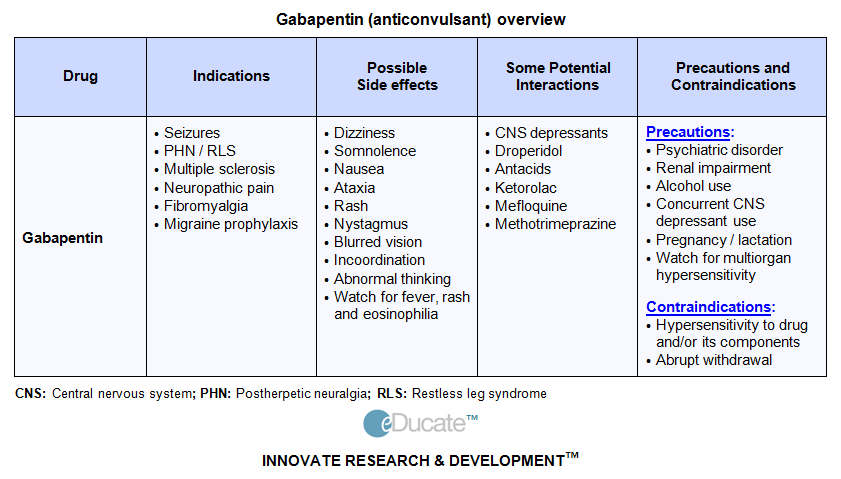Can You Get Addicted To Gabapentin?
No. Gabapentin use and abuse is not associated with compulsive, drug-seeking behavior or strong cravings that indicates addiction.
Yes, it is possible to develop an addiction to gabapentin, although it is generally considered to have a lower potential for abuse compared to more potent medications like opioids or benzodiazepines. Here’s what you should know about gabapentin addiction:
1. How Gabapentin Can Be Addictive
- Mechanism: Gabapentin affects the brain’s neurotransmitters, particularly by increasing the availability of GABA (gamma-aminobutyric acid), which has a calming effect. This can lead to feelings of relaxation, euphoria, or mild sedation in some individuals, contributing to its potential for abuse.
- Tolerance: Over time, some individuals may develop a tolerance to gabapentin, meaning they need higher doses to achieve the same effects.
- Dependence: Regular use of gabapentin can lead to physical dependence. If someone suddenly stops taking it, they may experience withdrawal symptoms, which can drive continued use.
2. Signs of Gabapentin Addiction
- Craving the Medication: A strong desire or urge to use gabapentin, even when it is not needed for medical reasons.
- Taking Higher Doses: Using more than the prescribed amount or taking doses more frequently than directed by a healthcare provider.
- Seeking Euphoria: Using gabapentin specifically to feel a “high” or enhanced sense of well-being.
- Doctor Shopping: Visiting multiple doctors to obtain extra prescriptions.
- Social or Occupational Impact: Using gabapentin even if it causes problems at work, school, or in relationships.
- Continued Use Despite Harm: Using gabapentin despite knowing it is causing physical, mental, or social harm.
3. Risk Factors for Gabapentin Addiction
- History of Substance Abuse: Individuals with a history of drug or alcohol abuse are at a higher risk for developing a gabapentin addiction.
- High Dosages: Taking high doses of gabapentin, especially without medical supervision, increases the risk of dependence.
- Co-Occurring Mental Health Disorders: Those with anxiety, depression, or other mental health issues may be more prone to misuse gabapentin to manage symptoms.
- Long-Term Use: Prolonged use of gabapentin can increase the likelihood of dependence.
4. Gabapentin Withdrawal Symptoms
- Anxiety or Agitation: Increased anxiety, irritability, or nervousness.
- Insomnia: Trouble sleeping or disturbed sleep patterns.
- Sweating: Excessive sweating or hot flashes.
- Nausea and Stomach Pain: Gastrointestinal discomfort, nausea, or vomiting.
- Tremors: Shaking or tremors, particularly in the hands.
- Confusion or Disorientation: Feeling mentally foggy or confused.
- Muscle Pain: Muscle aches or discomfort.
5. Managing and Preventing Gabapentin Addiction
- Follow Prescription Guidelines: Always take gabapentin exactly as prescribed by a healthcare provider. Do not increase the dose without medical approval.
- Regular Monitoring: If prescribed gabapentin for a long-term condition, schedule regular check-ins with your healthcare provider to assess the effectiveness and adjust the dosage as needed.
- Avoid Mixing with Other Substances: Avoid using alcohol, opioids, or other sedatives with gabapentin, as this can increase the risk of addiction.
- Open Communication: If you feel like you’re developing a dependency, discuss it openly with your healthcare provider. They can help taper the dosage or offer alternatives.
- Education: Be informed about the potential risks of gabapentin use, especially if you have a history of substance abuse or mental health disorders.
- Support Systems: Utilize support groups, counseling, or therapy if you feel that gabapentin use is becoming problematic.
6. Treatment for Gabapentin Addiction
- Medical Detoxification: A supervised medical detox may be necessary to manage withdrawal symptoms safely. Doctors can provide medications to ease withdrawal discomfort.
- Behavioral Therapy: Cognitive-behavioral therapy (CBT) and other forms of counseling can help address the psychological aspects of addiction.
- Support Groups: Groups like Narcotics Anonymous (NA) or specific gabapentin support groups can provide peer support and encouragement.
- Tapering Off: Gradually reducing the dosage under medical supervision can help minimize withdrawal symptoms and ease the process of stopping gabapentin use.
- Medication-Assisted Treatment: In some cases, other medications may be used to manage withdrawal symptoms or co-occurring disorders.
What kind of withdrawal symptoms occur when you stop taking this medication?

Questions About Gabapentin Dependency
If you concerned about the long-term effects of taking gabapentin, talk to your doctor about reducing your dose on a tapered schedule so that you can avoid withdrawal symptoms. Common withdrawal symptoms can occur during acute detoxification and include:
- anxiety
- insomnia
- nausea
- pain
- sweating
- temporary increase in seizure symptoms
How Do You Develop A Dependence On Gabapentin?
Taking gabapentin long-term is enough to develop a physical dependence on this type of medication. If you are taking gabapentin for a chronic condition such as epilepsy, your doctor can help you judge whether the potential for a physical dependence outweighs the symptoms it treats.
What Does Gabapentin Do In The Body?
Gabapentin decreases abnormal excitement of the brain and changes how the body feels pain. No one is exactly sure how gabapentin produces analgesic or anticonvulsant effects on the body. It’s possible that it interacts with receptor sites in the brain, but none have yet been found. While the mechanism of action is not known, studies have shown it to be effective in treating a variety of illnesses.